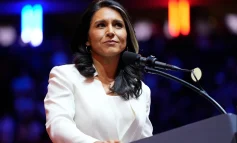
WASHINGTON (IPS) — While the ongoing U.S. military “surge” in Afghanistan continues to capture the headlines, Iran’s nuclear program — and how best to deal with it — is rapidly emerging here as this year’s biggest foreign policy challenge.
Although the administration of President Barack Obama remains hopeful that a combination of diplomacy and increasingly tougher sanctions will succeed in persuading Tehran to curb its nuclear efforts, the debate over stronger measures — from a sanctions-enforcing blockade to military strikes — is heating up.
The debate appears to be driven chiefly by growing pressure on the administration by the government of Israeli Prime Minister Binyamin Netanyahu and its supporters here to sharply ramp up pressure on Tehran through the urgent adoption of both “crippling sanctions” and the means to enforce them militarily.
“Time is growing short. There must be forceful sanctions now,” Netanyahu declared at a Jerusalem conference Feb. 17.
“Forceful sanctions must include steps to stop the importation of petroleum products to Iran and the export of energy,” he added in what was widely interpreted as a call for a blockade, as well as an implicit rejection of narrower sanctions — targeted chiefly at the Iranian Revolutionary Guard Corps (IRGC) — preferred by Obama at this point in the growing confrontation.
During a visit here last week, Israeli Defense Minister Ehud Barak pressed his U.S. counterpart, Robert Gates, to build up U.S. naval forces in the Gulf both to demonstrate Washington’s resolve and prepare to use them “to prevent critical imports and exports from” Iran as part of any enhanced unilateral or multilateral sanctions regime, according to an Israeli member of Barak’s delegation quoted in this week’s “Defense News.”
The same article, written by the newspaper’s Israel-based correspondent, Barbara Opall-Rome, also quoted an unnamed U.S. official as saying that Washington is considering ways to enforce any new sanctions that may soon be put before the U.N. Security Council.
The same official stressed, however, that Washington is not willing to consider “tripwire-type military challenges” to Iran “at least at this stage.”
The debate comes as the administration and its European allies are pressing a major diplomatic offensive to persuade veto-wielding Russia and China, as well as several doubtful non-permanent members of the Security Council — notably Brazil, Lebanon, and Turkey — to back or at least abstain on a new sanctions resolution that would restrict or ban commercial transactions with IRGC-controlled companies in Iran’s banking, shipping and insurance sectors.
At the same time, the administration is resisting pressure from Congress to go along with pending legislation that, among other things, would impose sanctions against foreign companies that export gasoline to Iran or have major investments in Iran’s energy sector.
The so-called “Israel Lobby” enjoys strong support on both sides of the aisle. It sees the legislation as the first of a series of “crippling” sanctions — preferably multilateral, but unilateral for now — that would eventually be backed up with military force.
But the administration argues that unilateral sanctions at this point risk alienating countries whose support is essential for persuading the Security Council to take tougher action.
In addition, the burdens created by such sanctions would fall on the Iranian population as a whole, rather than on specific hard-line leaders and institutions. That, in turn, could trigger a nationalistic reaction that would rally the citizenry behind the regime and thus weaken the opposition Green Movement, according to the administration and its backers.
But the Israelis, who believe that the opposition is too weak to seriously threaten the regime in the short term, argue that the nuclear situation requires harsher and more urgent action.
“It’s clear to me that the clock toward the collapse of this regime works much slower than the clock which ticks toward Iran becoming (a) nuclear military power,” Barak told an audience at the Washington Institute for Near East Policy (WINEP), a think tank closely tied to the American Israel Public Affairs Committee (AIPAC), the leading Israel Lobby organization.
He also argued that Tehran’s acquisition of a nuclear capability would constitute for Israel – if not for the U.S. – a “tipping point of the whole regional order.”
Israel’s call for stronger and more urgent action is strongly echoed by both hard-line neo-conservatives and some of their aggressive nationalist allies who played a major role in persuading the administration of President George W. Bush to invade Iraq.
Former U.N. Amb. John Bolton has been arguing for months that neither diplomacy nor sanctions would succeed and that Obama should at least acquiesce in Israel’s carrying out a military strike against Iran’s nuclear facilities, if not order a more massive assault by U.S. forces the sooner the better. He was recently joined by last year’s Republican vice-presidential candidate, Sarah Palin.
Bolton’s conviction regarding the ineffectiveness of diplomacy or sanctions in preventing Iran from acquiring a nuclear capacity is also increasingly accepted by more establishment figures who are now debating whether the threat or use of military action to prevent Tehran from acquiring a nuclear weapons capacity can succeed.
Last month, the president of the influential Council on Foreign Relations (CFR), Richard Haass, argued in a widely noted Newsweek column that “regime change” was the “only way to stop Iran” and followed it up in an interview with the magazine’s Fareed Zakaria that Washington should consider taking unilateral military action to prevent it from acquiring a nuclear weapon.
The growing clamor for stronger action drew a sharp rebuttal this week from two key analysts at the Brooking Institution here.
In a Financial Times column entitled “Do Not Even Think About Bombing Iran,” Michael O’Hanlon and Bruce Riedel argued that Washington should be careful about brandishing military threats lest it lead to a “self-fulfilling prophecy.”
“The strike option lacks credibility,” wrote O’Hanlon, an Iraq War hawk, and Riedel, who led the Obama administration’s review of Afghanistan-Pakistan policy one year ago. “America is engaged in two massive and unpopular military campaigns in the region.”
“Given Iran’s ability to retaliate against the U.S. in Iraq and Afghanistan, it is simply not credible that we would use force in the foreseeable future,” they went on, adding that Washington should, among other steps, “structure a sanctions regime so that it could evolve into containment of a nuclear-armed Iran.”





Leave a Reply